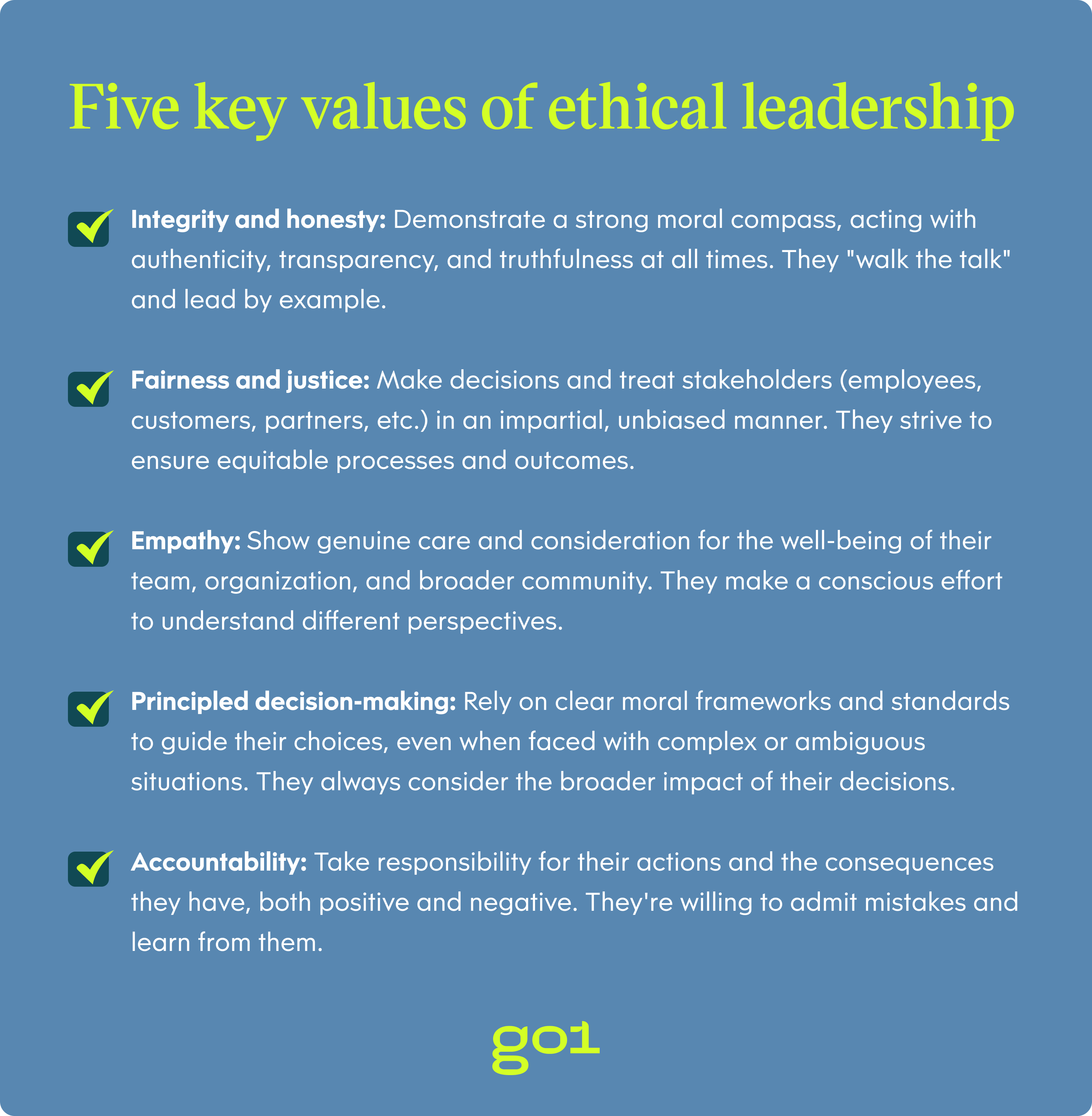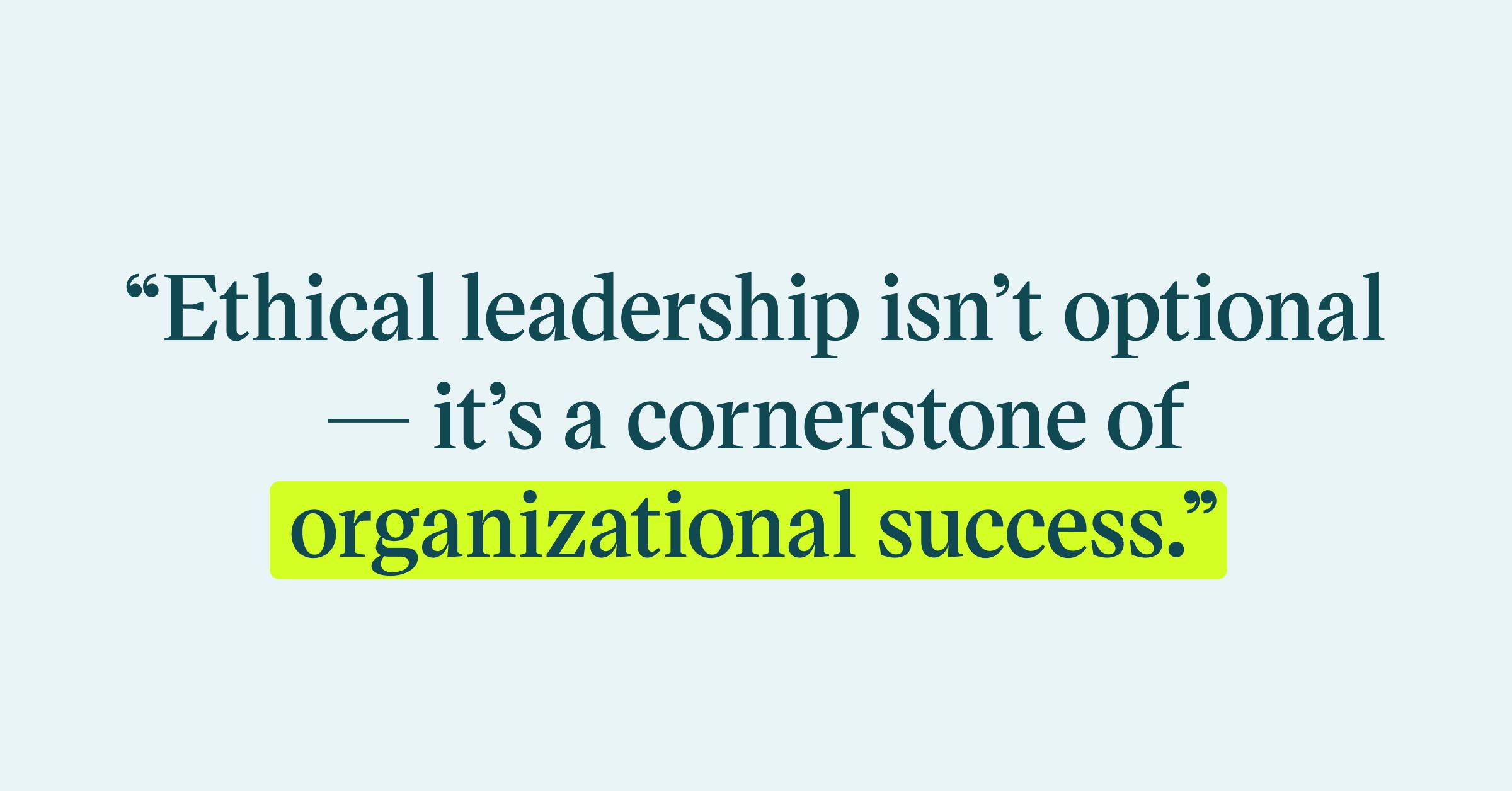
Leading with integrity: Why ethics matter more than ever
Leading with integrity has never been more critical. As Generation Z is poised to make up 25% of the workforce by 2025, their expectations for ethical leadership are reshaping workplace norms. This generation prioritizes transparency, fairness, and purpose, challenging organizations to rise to the occasion.
Despite this growing demand, trust in organizational leadership remains alarmingly low. Only 21% of US employees strongly trust their leaders — a decline from 24% in 2019. This erosion of trust underscores the urgent need for leadership grounded in ethics and integrity. And for consumers, much is the same. Customers, partners, and the general public are increasingly demanding that businesses operate with transparency and ethical principles.
When organizations lead with ethics and integrity, they create true trust at an individual and organizational level — both of which can contribute to an organization’s long-term success and sustainability. Of course, the opposite can be true, too — when an organization doesn't have trustworthy leaders who act with integrity, their success can be threatened.
What is ethical leadership?
Ethical leadership revolves around guiding an organization with a steadfast commitment to moral principles.
At its core, ethical leadership embodies key values such as:
- Integrity and honesty: Ethical leaders demonstrate a strong moral compass, acting with authenticity, transparency, and truthfulness at all times. They "walk the talk" and lead by example.
- Fairness and justice: Ethical leaders make decisions and treat stakeholders (employees, customers, partners, etc.) in an impartial, unbiased manner. They strive to ensure equitable processes and outcomes.
- Empathy: Ethical leaders show genuine care and consideration for the well-being of their team, organization, and broader community. They make a conscious effort to understand different perspectives.
- Principled decision-making: Ethical leaders rely on clear moral frameworks and standards to guide their choices, even when faced with complex or ambiguous situations. They always consider the broader impact of their decisions.
- Accountability: Ethical leaders take responsibility for their actions and the consequences they have, both positive and negative. They're willing to admit mistakes and learn from them.
Among organizations that demonstrate this kind of ethical leadership, Patagonia — the outdoor apparel company that has long been known for its commitment to sustainability and environmental protection — stands out as an example.
In 2011, the company famously ran a Black Friday ad with the tagline "Don't buy this jacket," encouraging customers only to purchase what they truly need — directly in line with their morals and values around overconsumption and protecting valuable resources.

Why is ethical leadership so important?
Ethical leadership isn’t optional — it’s a cornerstone of organizational success.
According to Harvard Business Review, people at high-trust companies report:
- 74% less stress and 106% more energy at work
- 50% higher productivity and 76% more engagement
- 29% more satisfaction and 40% less burnout than people at low-trust companies.
Plus, ethical leadership leads to a more physiologically safe workplace where people trust their leaders and their vision, feel comfortable voicing their opinions, and will ask for support.
Here’s what this means: When organizations lead with integrity and true ethics, their employees have greater well-being, leading to more engagement and productivity — a win-win for everyone.

Top ethical challenges facing businesses today
There are plenty of obstacles that test the character and decision-making abilities of organizations’ leaders.
Some of the key ethical issues include:
- Corporate social responsibility: Balancing profit motives with environmental sustainability, community impact, and fair labor practices.
- Data privacy and security: Protecting customer information and using data ethically in an era of increased surveillance and targeted attacks.
- Diversity, equity, and inclusion: Ensuring fair and unbiased treatment of internal and external stakeholders regardless of race, gender, age, or other identifying characteristics.
- Conflicts of interest: Maintaining objectivity and transparency when personal, financial, or political interests intersect with business decisions.
- Ethical supply chains: Ensuring products and services aren't tainted by human rights abuses, unfair labor practices, or environmental destruction further down the supply chain.
Developing ethical decision-making and a culture of integrity
Learning and Development (L&D) plays a pivotal role in shaping ethical leaders. By designing targeted programs, L&D teams can equip leaders with the tools for principled decision-making, foster moral behavior, and build a culture where integrity thrives.
Some starting areas to focus on for L&D include:
- Ethics and integrity training: Providing comprehensive training on ethical frameworks, case studies, and decision-making models to help leaders recognize and navigate complex moral dilemmas.
- Ethical leadership development: Designing leadership development programs that emphasize self-awareness, emotional intelligence, and the ability to role-model ethical conduct.
- Speak-up culture: Implementing initiatives that encourage employees to voice concerns, ask questions, and challenge unethical practices without fear of retaliation.
- Accountability: Ensuring that the organization's performance management, recognition, and consequence systems reinforce and reward ethical behavior, not just results.
- Ethical risk assessment: Equipping leaders with the skills to proactively identify potential ethical risks and vulnerabilities within the business.
When creating these programs, be sure to offer leaders several different channels for learning — like blended learning, mentorship, modules, podcasts, and more — in order to increase engagement and retention.
Building a culture of integrity across an organization
Along with offering training to leaders and employees, we’d encourage organizations to incorporate ethics and integrity into other parts of business operations.
Consider looking deeper into these areas and processes:
- Onboarding: Embedding ethics training, case studies, and discussions into the onboarding process to ensure new hires understand the company's ethical expectations from the outset. For example, you can provide real-world scenarios that challenge new employees to apply ethical reasoning.
- Communications and campaigns: Launch targeted communications, awareness campaigns, and storytelling initiatives that celebrate and highlight ethical conduct within the organization. For example, you might place posters or digital displays in common areas that reinforce integrity as a core value. Some companies even display a hotline number for reporting misconduct prominently in break rooms or onboarding portals.
- Performance management: Incorporating ethical considerations into performance reviews, promotion criteria, and recognition programs to incentivize and reward ethical leadership. You might offer small cash bonuses, points, or "shoutouts" at team meetings for employees who demonstrate ethical decision-making.
- Culture: Collaborating with HR and compliance to establish clear, confidential channels for employees to report ethical concerns or misconduct, and providing training on how to use these mechanisms. EthicsPoint or Convercent are good examples of tools organizations can use that allow employees to report ethical issues anonymously.
Go1 simplifies ethics training, offering accessible, high-quality content that empowers organizations to instill integrity at every level. From creating custom learning paths to accessing 100+ pre-curated playlists aligned to a broad range of skill development needs, your organization can make ethics training a simple and effective part of your everyday operations.
Experience the future of learning with one, easy-to-integrate subscription. Schedule a demo with our team to explore Go1's innovative features and benefits.





